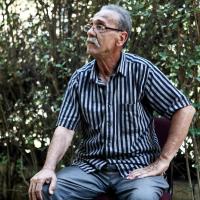
Stacey A. Langwick
Africana Studies and Research Center, Anthropology, Feminist, Gender and Sexuality Studies Program, Science and Technology Studies
 Department Homepage
The College of Arts & Sciences
Department Homepage
The College of Arts & Sciences

Africana Studies and Research Center, Anthropology, Feminist, Gender and Sexuality Studies Program, Science and Technology Studies

Cornell will celebrate the birthday of alumna and Nobel Laureate Toni Morrison MA ’55 from 3-5 p.m. Feb. 18 with a screening of the film “The Foreigner’s Home” (2017), followed by a roundtable discussion.

The Cornell Center for Cultural Humility provides a new resource to understand and help break down barriers between people.

The Cornell Center for Social Sciences grant program, which supports social science research by Cornell faculty members, has awarded $85,000 to 10 professors for their 2022-23 CCSS Faculty Fellows program.

Africana Studies and Research Center, Anthropology, Feminist, Gender and Sexuality Studies Program, Lesbian, Gay, Bisexual and Transgender Studies Program

Africana Studies and Research Center, History of Art and Visual Studies, Institute for Comparative Modernities




On March 22 co-founder and former leader of the Israeli Black Panthers will give a talk, "Darkness in the Holy Land: The Israeli Black Panthers’ Struggle for Human Rights and Against Racism."